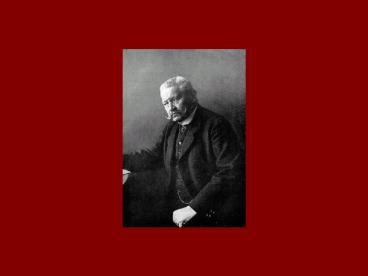Fuel Cells - PowerPoint PPT Presentation
1 / 18
Title:
Fuel Cells
Description:
... hydrogen which needs to be compressed or kept at very cold ... Zinc-Air Fuel Cells (ZAFC) Protonic Ceramic Fuel Cell (PCFC) Benefits of Fuel Cell Use ... – PowerPoint PPT presentation
Number of Views:62
Avg rating:3.0/5.0
Title: Fuel Cells
1
(No Transcript)
2
(No Transcript)
3
(No Transcript)
4
(No Transcript)
5
(No Transcript)
6
(No Transcript)
7
Fuel Cells
8
(No Transcript)
9
(No Transcript)
10
The Basics of Hydrogen
- Most common element in the universe.
- Has the highest energy content per unit weight of
any known fuel. - Never occurs by itself in nature.
- Always combines with other elements, like oxygen
- (for water) and carbon (for fossil fuels).
- Once separated, is the ultimate clean energy
carrier, non-polluting, as safe as gasoline and
can be produced anywhere.
11
How Hydrogen is Produced
- Can be extracted from water, fossil fuels and
organic matter. - Comes from natural gas made to react with steam,
producing hydrogen and carbon dioxide, and can
also be made from coal. - Carbon-free methods involve splitting water into
its component parts of hydrogen (H2) and oxygen
(O). - The holy grail of hydrogen is to use a renewable
source like solar, wind, hydro geothermal or
biomass power to create the current, making the
process pollution free and sustainable.
12
How Fuel cells fit in the Hydrogen Picture
- Fuel cells are compared to batteries. Both
convert the energy produced by a chemical
reaction into usable electric power. - The fuel cell will produce electricity as long as
fuel (hydrogen) is supplied, never losing its
charge. - Fuel cells are 2-3 times more efficient, in a car
that means they can get 2-3 times the mileage. - Like batteries, fuel cells need to be replaced.
- Cost is the biggest impediment. Gasoline is
easier to store than hydrogen which needs to be
compressed or kept at very cold temperatures.
13
Hydrogen in Fuel Cells
- Generate electricity by chemical reaction.
- Every fuel cell has two electrodes, a cathode (-)
and an anode (). - An electrolyte carrying electrically charged
particles from one electrode to the other, and a
catalyst speeding the reactions at the
electrodes. - Hydrogen, or a hydrogen-rich fuel, is fed to the
anode where a catalyst separates hydrogens
negatively charged electrons from positively
charged ions (protons). - At the cathode, oxygen combines with electrons
and, in some cases, with species such as protons
or water, resulting in water or hydroxide ions,
respectively. - For polymer electrolyte membrane (PEM) and
phosphoric acid fuels, protons move through the
electrolyte to the cathode to combine with oxygen
and electrons, producing water and heat.
14
Is Hydrogen Safe?
- Hydrogen is neither more nor less inherently
hazardous than gasoline, propane, or methane. - A study found the Hindenburgs skin to be covered
in the same component as rocket fuel. An
electrical charge ignited the skin, the hydrogen
gas used to float the the blimp did ignite, it
burned upward and away from the people on board
and provided a slow, safe descent for those who
stayed on board.
15
Chemistry of a Fuel Cell
Anode side 2H2 gt 4H 4e- Cathode side O2
4H 4e- gt 2H2O Net reaction 2H2 O2 gt 2H2O
16
How Fuel Cells Work
17
Types of Fuel Cells
- Phosphoric Acid (PAFC)
- Proton Exchange Membrane (PEM)
- Molten Carbonate (MCFC)
- Solid Oxide (SOFC)
- Alkaline
- Direct Methanol Fuel Cells (DMFC)
- Regenerative Fuel Cells
- Zinc-Air Fuel Cells (ZAFC)
- Protonic Ceramic Fuel Cell (PCFC)
18
Benefits of Fuel Cell Use
- Energy Security
- Physical security
- High Reliability/High Quality Power
- Fuel Flexibility
- High Efficiency
- Environmental Benefits
- Power Generation
- Motor Vehicles
- Modularity/Flexibility
- Battery Replacement/Alternative































